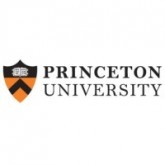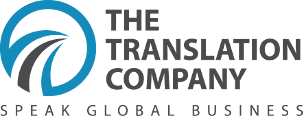
Princeton University
- Undergraduate
- Continuing Education
- Graduate
- Professional Studies
About the Program
Program Description
Certificate Program: General Information
Issues of translation and intercultural communication arise everywhere in the contemporary world: in literary texts, on the internet, intelevision and film, in business, science, and in questions of human rights. How does one translate the language of a poem? How does one translate a legal system or concepts such as democracy, or happiness, or scapegoat, or hero from one culture and language to another? How does the brain perform translation? What are the languages of artificialintelligence? How do we translate meanings across disciplinary as well as international borders—from genomics to dance, from philosophy to film?
The Program in Translation and Intercultural Communication seeks to allow students to develop skills in language use and in the understanding of cultural and disciplinary difference. Translation across languages allows access to issues of intercultural differences, and the program will encourage its students to think about the complexityof communicating across cultures, nations, and linguistic borders. For this reason, all students in the program must have proficiency in a language other than English, and must also spend time living in a country where that language is spoken.
Though the program takes linguistic translation as its base, and has a strong international flavor, it also encourages students to study other forms of discourse, the languages of different scholarly disciplines, for example, and seeks to foster livelydebates among the sciences, humanities, and the arts. All students enrolled in the certificate program are required to successfully complete the following:
The program’s two core courses:TRA 200 Issues in Translation and TRA 400 Senior Seminar in Translation and Intercultural Communication
Translation Practices:At least one course selected from a small roster of courses in different areas. For this semester, students may choose from among the following courses:
· ANT 413 Cultures and Critical Translation
· COS 402 Artificial Intelligence
· CWR 305 Advanced Creative Writing (Translation) (also COM 355)
· CWR 306 Advanced Creative Writing (Translation) (also COM 356)
· LIN 216 Language, Mind, and Brain (also PSY 216)
· PHI 317 Philosophy of Language
· PSY 208 The Brain: A User’s Guide
· Three additional elective courses selected from a list of approved courses (see below); substitutes must be approved by the program director. Students will be closely guided in their individual choices, and departments will be invited to make their own suggestions for their contributions to this certificate.
International Experience:Students wishing to achieve a certificate in the program will spend a year, a semester, or six weeks of the summer in a Princeton-approved course of study or internship program in an area where the chosen non-English language of proficiency is spoken.
Senior Thesis:Students in the program will write a senior thesis that incorporates issues of translation in one or more of its several senses. In departments where this option presents a difficulty, a student may petition to have another piece of independent work meet the requirement. Such projects may be completed, for instance, during a summer stay abroad.
Costs
Contact University.
Editor notes
Instead of focusing on specific language fields as other courses, the course looks at issues in political theory, anthropology, artificial intelligence, cinema studies, the United Nations, literary publishing, and advertising that involve the boundaries of interlingual translation and intercultural communication to acquire a better understanding of the problems and practices of translation in the modern world. One key element of the course to make good translators is the international experience which is required for students to receive a certificate having to spend at least six weeks studying in another country.
Link
http://webscript.princeton.edu/~ptic/index.php
Contact Information
Director of the Program in Translation and Intercultural Communication
David Bellos, MA, D Phil Department of French and Italian 330 East Pyne Princeton University Princeton NJ 08542 Email: dbellos@princeton.edu
Program ManagerAudrey Mainzer 210 Aaron Burr Hall Princeton University Princeton NJ 08542 Email: amainzer@princeton.edu

